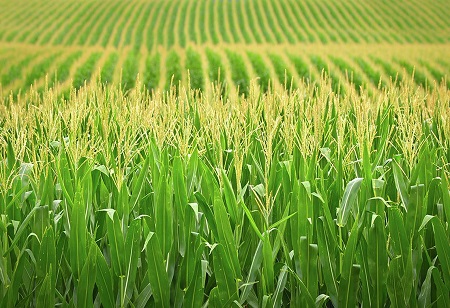According to a report by Reuters, India has given a green flag to imports of 5 lakh tonnes of corn this year at a concessional 15 percent import tax as New Delhi tries to augment supplies of the animal feed for the poultry industry. Being the world’s seventh-biggest corn producer, India usually imposes a 60 percent import tax on the grain. The corn imports under the tariff-rate quota (TRQ) were allowed for end-consumers in the poultry and starch supply sectors. A major exporter of corn to Southeast Asia until a few years ago, India has become an importer as output has fallen and demand has grown from domestic poultry producers and corn starch manufacturers.
India’s corn imports in 2019 jumped to 312,389 tonnes in 2019 from just 30,962 tonnes a year ago, the government data showed. As India does not allow cultivation of any genetically modified food crops, it has rules in place to ensure that imports contain no trace of genetically modified organisms. New Delhi also cleared imports of 10,000 tonnes of milk and cream powder for this year at a concessional 15 percent import tax. The country also authorised import quotas of 150,000 tonnes each of rapeseed oil and sunflower oil carrying import taxes of 45 percent and 50 percent respectively.
India is the world’s biggest importer of edible oils. It mainly imports rapeseed/canola oil from Canada and sunflower oil from Ukraine and Russia. But B.V. Mehta, Executive Director of the Solvent Extractors’ Association (SEA), a Mumbai-based trade body, said Indian refiners may be unlikely to import rapeseed oil and sunflower oil under those tariff-rate quotas as the import tax on regular imports is actually lower, at 35 percent.
Interestingly, maize prices have fallen to an over two-year low of 1,250-1,300 rupees per 100 kg in the past few months on weak demand, as per Cogencis. Although prices recovered marginally to 1,300-1,350 rupees, they are still sharply lower than the Centre-set minimum support price of 1,760 rupees. Rumours on social media that poultry products could be carriers of coronavirus have led to a sharp fall in demand for broilers and eggs, and is seen hitting the prices of maize, a key component of poultry feed. “The demand for poultry feed has declined over the last few weeks as retail demand for chicken and eggs has gone down,” said Niket Chheda, Director of P.V. Sons Corn Milling Co.
 Magazine
Magazine
